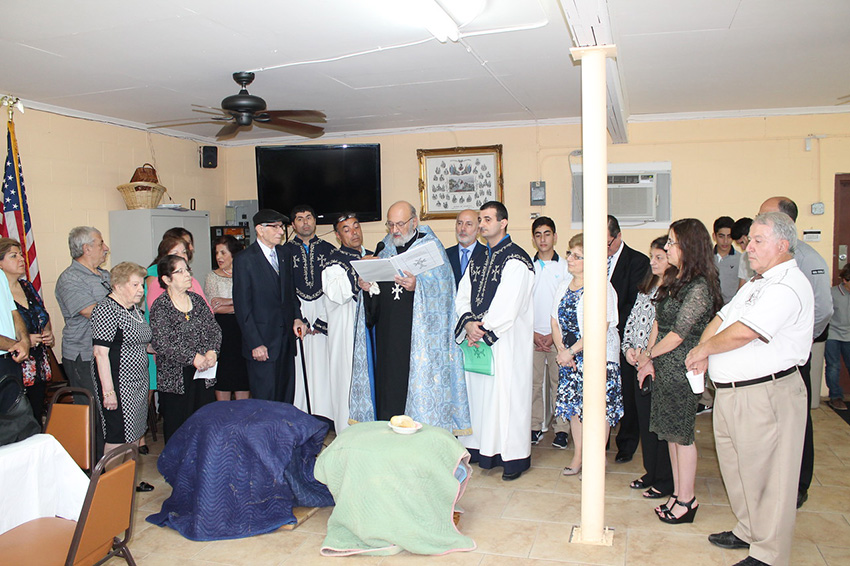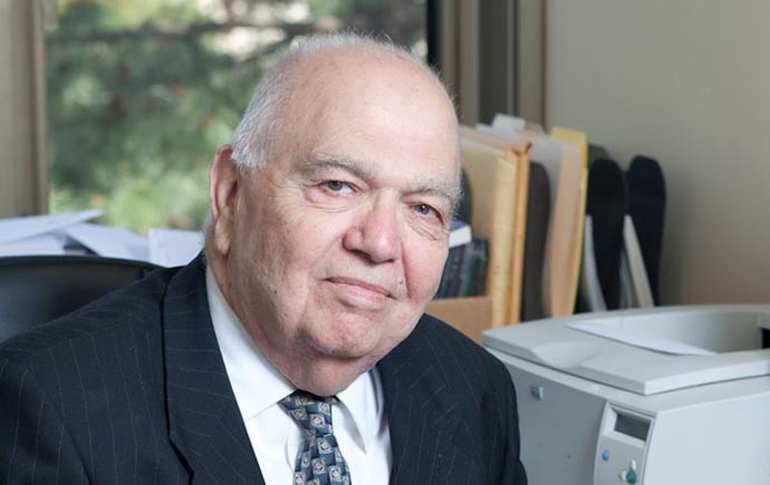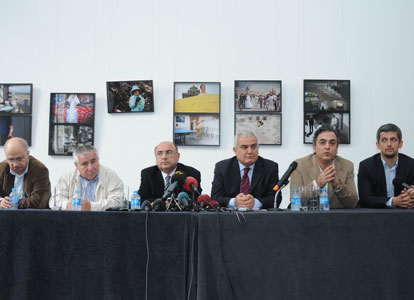BATON ROUGE, LA — Parishioners of the St. Garabed Parish of Baton Rouge, LA, gathered over the weekend of October 13-14 to remember the heroic defenders of the city of Hadjin. Visiting pastor Fr. Tateos Abdalian traveled to share in the occasion.
As they do every year, the parishioners made an offering of the madagh of jidaboor. The preparation of the traditional meal began on Friday evening, with Fr. Tateos conducting the Rite of the Blessing of Salt. The salt—a symbol of cleansing—would be added to the large pots of meat and barley in which the jibadoor meal would be cooked.
Members of the community, old and young alike, gathered at around 9 p.m. on Saturday night to begin the vigil of cooking. Women of the parish had already prepared the meat by cutting it into tiny pieces; this was put into several large pots along with barley and spices. The process of cooking would involve continually stirring the mixture in the pots.
A little after 2 a.m., the process was completed. The pots were taken to the church hall to await a proper blessing, which would be conferred at the close of badarak on Sunday.


Prayers for Heroes
It was during the badarak that Fr. Abdalian spoke the prayer of intercession for the Holy Martyrs of the Armenian Genocide, invoking with special emphasis the martyrs who died defending the city of Hadjin.
Requiem prayers were offered for the departed souls of families descended from the survivors of Hadjin; and for the repose of Archbishop Torkom Manoogian, the late Patriarch of Jerusalem and Diocesan Primate; for Archbishop Yeghishe Gizirian, a greatly-missed friend to the Baton Rouge parishioners, whose Name Day was marked on Saturday; and for Bishop Hovsep Garabedian, pastor of the St. James Church in Watertown, MA, during the late 1940s, who baptized Fr. Abdalian.
Afterwards, the faithful gathered in the church hall for the Blessing of Madagh. As they consumed the jibadoor meal, parishioners broke into songs about the heroic Armenians of Hadjin.
Present for the occasion were two visiting scholars: the Rev. Dr. Abel Manoogian of Geneva, Switzerland—a son of Hadjin—who has recently published a book on Swiss humanitarian contributions during the Armenian Genocide, and Anahid Khosroeva, a well-known historian from Armenia who is presently teaching in Chicago.
Remembering Hadjin
The historic defense of Hadjin began in earnest on March 31, 1920. In the prior cataclysm of the Genocide, a population of some 20,000 had been reduced to 8,000. For seven months the Hadjin Armenians defended their town against savage attacks from an overwhelming Turkish force.
But by mid-October, with only 480 men remaining, the defenders could no longer hold their position and chose to abandon the city, fleeing in small groups south towards Feke and on to Adana. Those who could not escape were massacred without mercy.
The dramatic episode of history has been marked annually for some three decades by the Baton Rouge parishioners—many of whom trace their family roots to Hadjin.










